Published Dec 12, 2024
Star Trek VI: The Undiscovered Country is An Underrated Classic
The sixth film is worthy of the same perpetual praise directed toward the other installments for the Original Series crew.
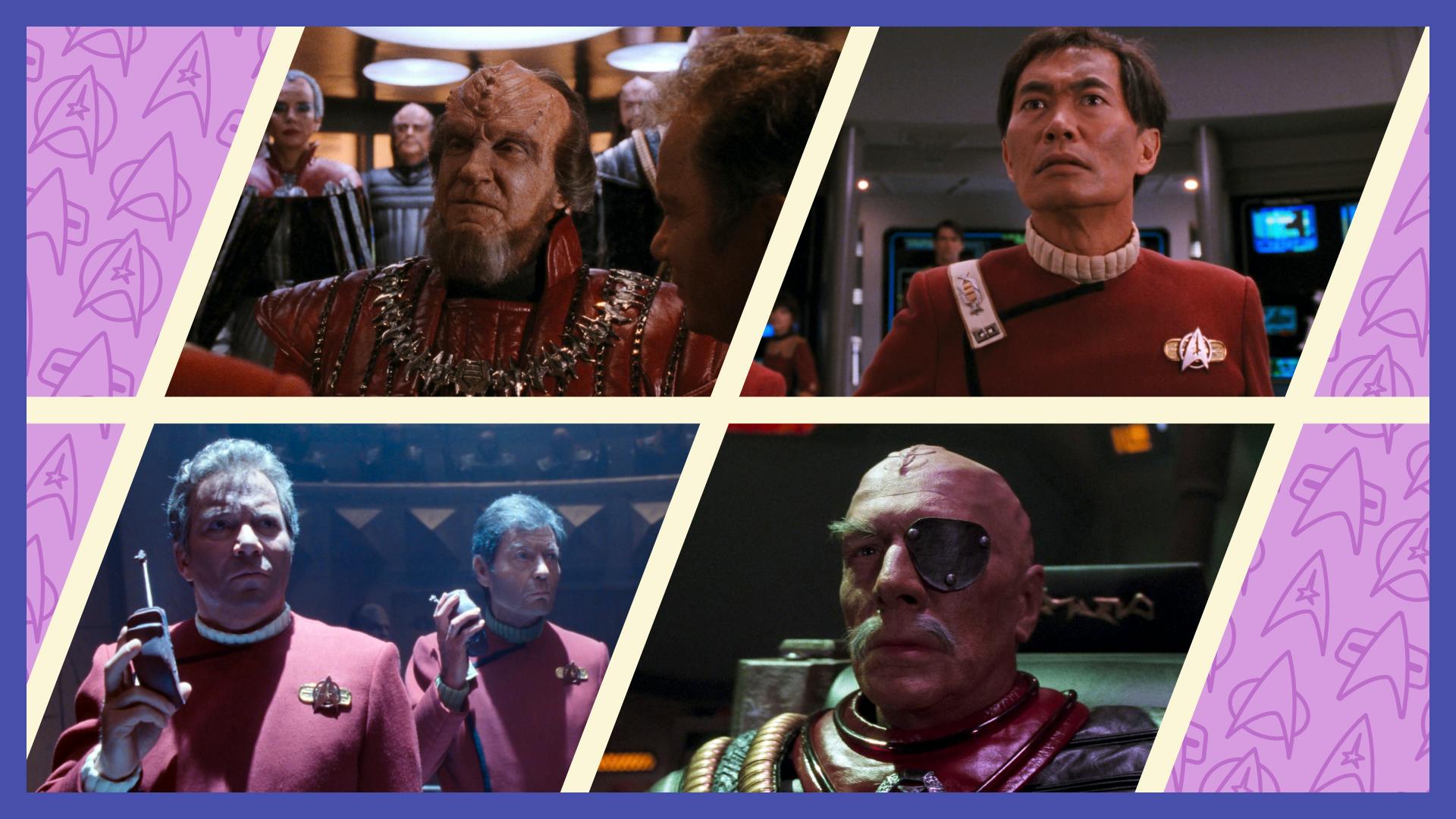
StarTrek.com
Referring to as "underrated" will surely astonish the countless fans who love the film, but it's tough to deny that it's regularly overshadowed by and whenever wider pop culture audiences contemplate the original cast's cinematic exploits.
As deserving as The Wrath of Khan and The Voyage Home are to receive such accolades, we're setting out to demonstrate why The Undiscovered Country is a classic in its own right and worthy of the same perpetual praise directed toward the other two iconic installments.
Captain Sulu's Command
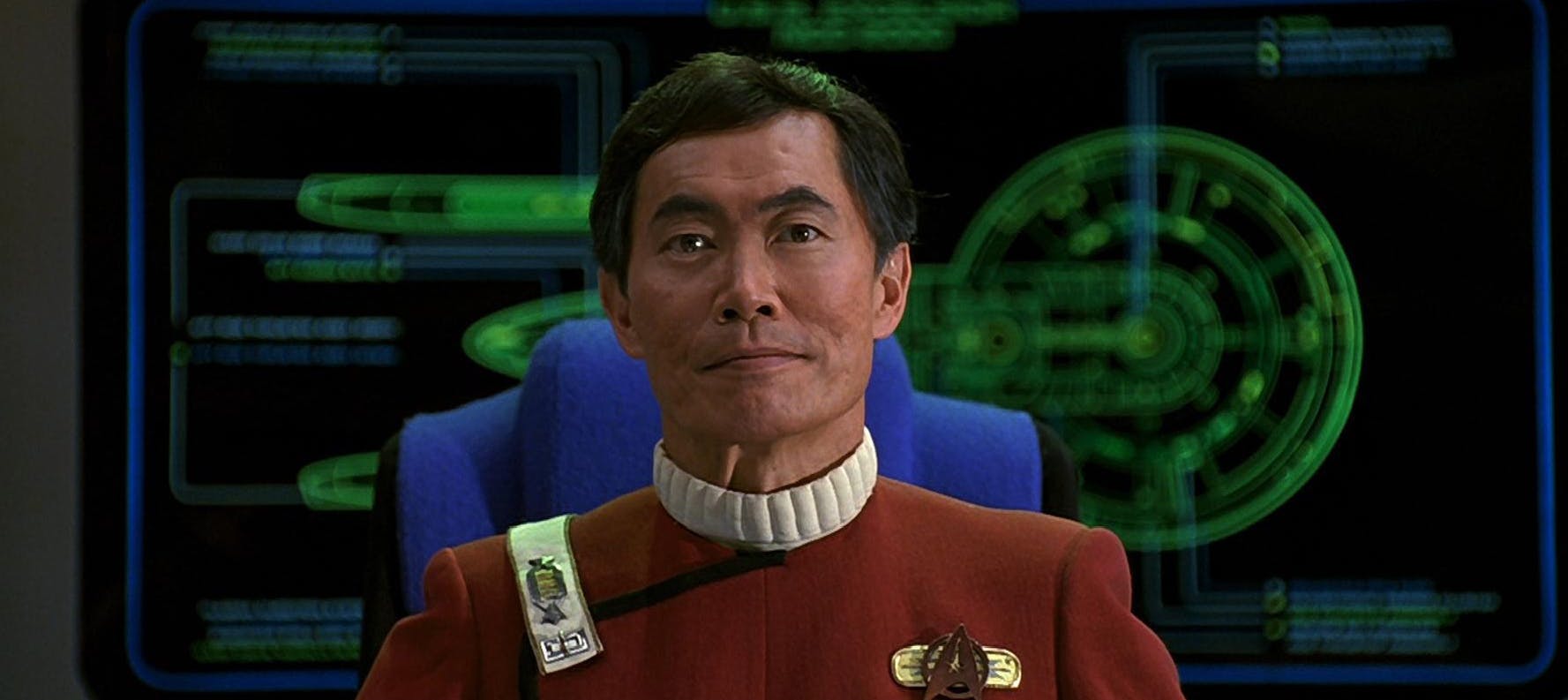
Star Trek VI: The Undiscovered Country
StarTrek.com
A fan-favorite character who seemed destined for the center seat, Hikaru Sulu finally received his chance at a captaincy in The Undiscovered Country. Captain Sulu may have been off cataloging gaseous anomalies for three years, but he wasted no time in proving why he was the perfect person to lead the U.S.S. Excelsior upon his return.
From weathering the Praxis shockwave to eagerly assisting Captain James T. Kirk and the U.S.S. Enterprise-A's plight to save the Khitomer Conference, Sulu's time in the captain’s chair was defined by courage, loyalty, and leadership. He didn't just rescue his former crew from General Chang's prototype Bird-of-Prey, he also used his larger-than-life presence to turn the simplest commands into memorable moments, delivering orders such as, "Shields!," "Fly her apart, then!," and "Target that explosion and fire."
Interstellar Political Intrigue

Star Trek VI: The Undiscovered Country
StarTrek.com
While hostilities between the Federation and Klingon Empire were a staple of and the previous films, the idea of turning the Praxis disaster into a catalyst for diplomacy was an ingenious way to explain how such rivals might quell such a longstanding conflict. The interactions between the Federation and its neighbors have always been fascinating to watch, providing The Undiscovered Country with a layer of political intrigue to complement its sci-fi foundation.
The conspiracy concocted by Starfleet's Admiral Cartwright, the Klingon Empire's General Chang, and the Romulan ambassador was both shocking and groundbreaking, as the unexpected twist ultimately sent the warring governments down a path toward peace. In addition, the film's Khitomer Conference became a pivotal link to , serving to explain how the Federation-Klingon relationship had improved by the mid-24th Century.
Confronting Preconceptions
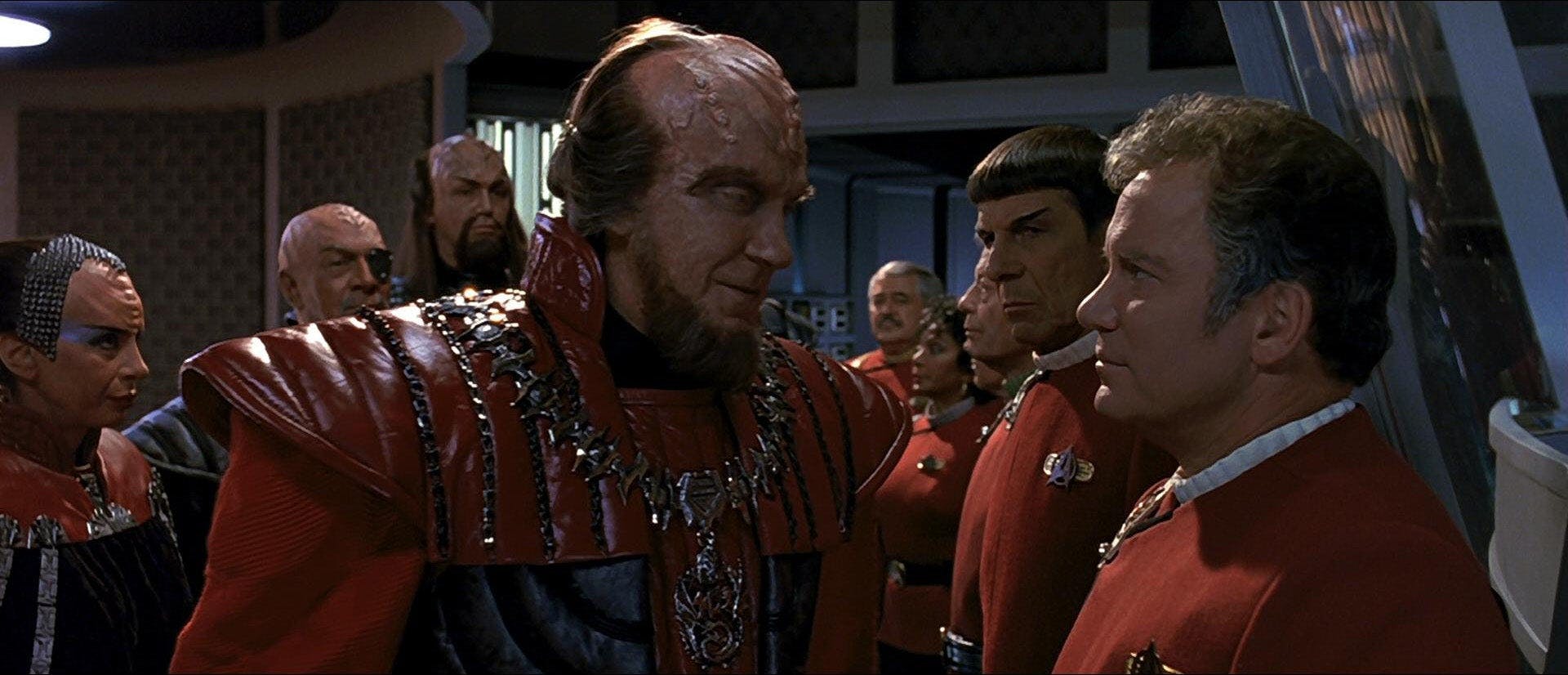
Star Trek VI: The Undiscovered Country
StarTrek.com
Rather than cataloging the Enterprise-A on a voyage into unknown space, The Undiscovered Country excelled in giving its characters a chance to challenge their own prejudices. Hearing a valiant figure like Captain Kirk argue against helping the Klingons by referring to them as "animals" and coldly proclaiming "Let them die" was disturbing to say the least, but it was soon followed by his admission that he blamed the Klingons for his son's murder.
Even in the face of such hatred, Kirk had the wherewithal to question how history could get past people like him. Chancellor Gorkon related to the sentiment, agreeing that their generation would have the hardest time living with peace between the Federation and Klingon Empire. Fortunately, Kirk didn't merely confront his preconceptions, he overcame them. In a private confession to Spock, the captain expressed guilt for not taking Gorkon at his word and needing to witness the chancellor die before he realized how prejudiced he had been towards Klingons.
Committed to Peace
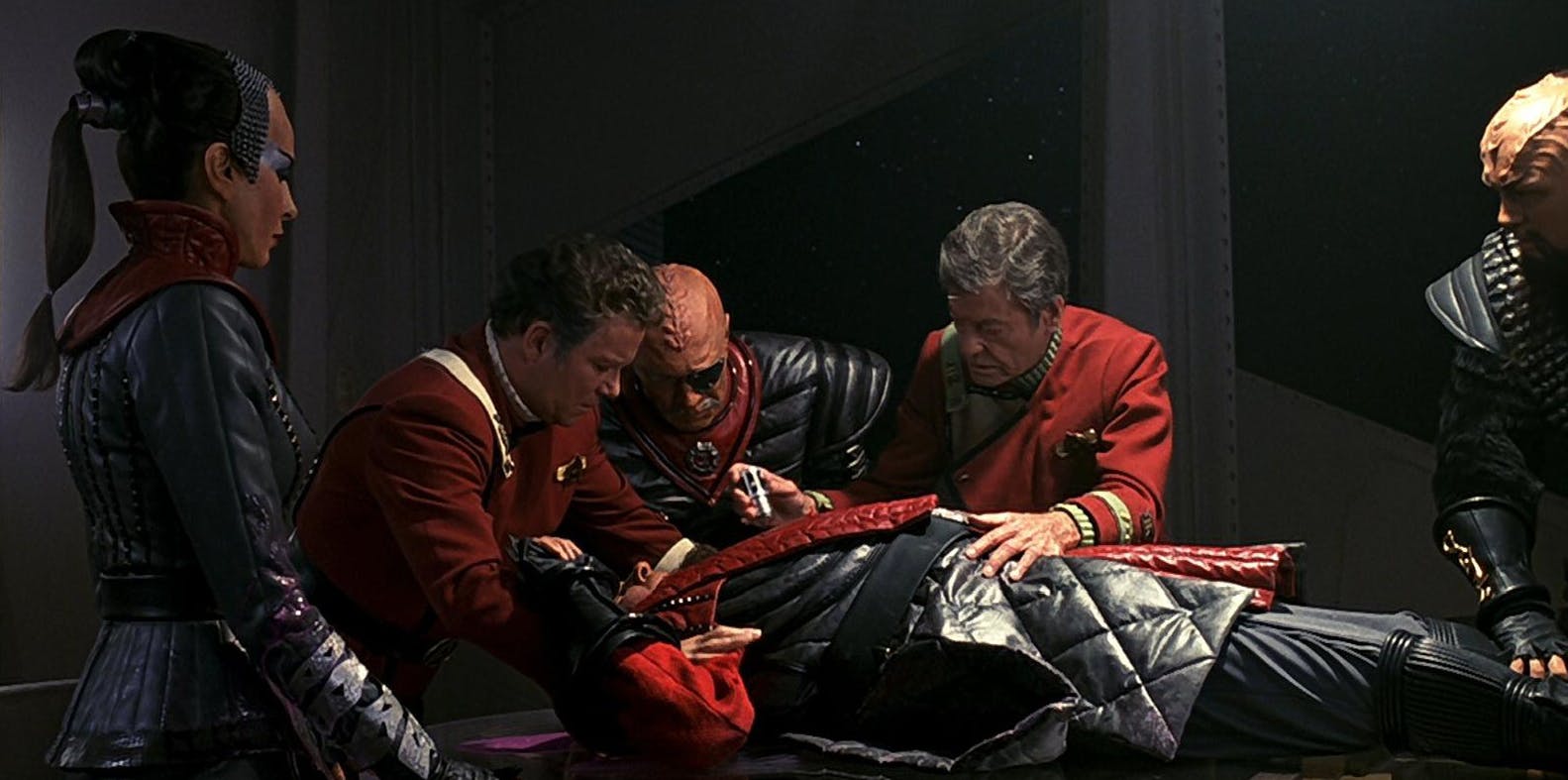
Star Trek VI: The Undiscovered Country
StarTrek.com
Even when his distrust of Klingons ran high, Captain Kirk acted against those instincts in the name of diplomacy. Despite his displeasure with the task, Kirk still accepted the assignment to escort Chancellor Gorkon's ship.
After Gorkon was mortally wounded in an assassination attempt, Kirk was adamant that he not be an instigator of full-scale war on the eve of universal peace. The captain put himself in peril, boarding the Klingon ship in a bid to emphasize that he had not authorized an attack on Gorkon. Dr. McCoy followed suit, accompanying Kirk, and employing his medical expertise in a futile effort to revive the chancellor. These actions did not excuse the officers' disdain for the Klingons, but their efforts exhibited their dedication to the preservation of life.
A Qo'noS Court
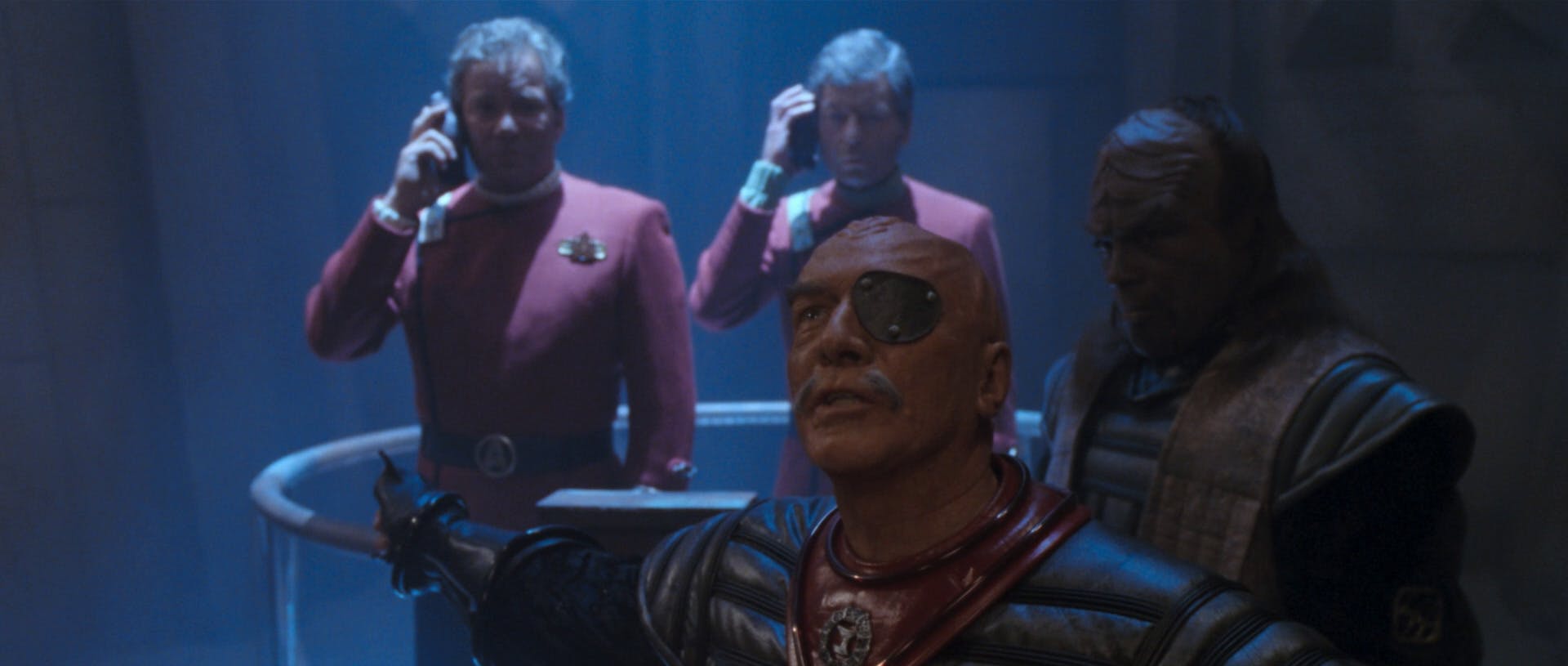
Star Trek VI: The Undiscovered Country
StarTrek.com
Any occasion to learn more about Klingon culture is a treat, but experiencing the Empire's judicial system juxtaposed their interest in conducting a fair trial with the grim sentences they gave out. Whether or not the proceedings were all for show, the court required General Chang to present evidence of Kirk and McCoy's alleged crime, supplied the accused with a defense counselor familiar with Klingon law (with a special appearance by Michael Dorn as Colonel Worf!), and considered leniency when it came time to levy a punishment.
Of course, replacing a death sentence with a life sentence to the brutal Rura Penthe dilithium mine was not much of a consolation for the two Starfleet officers. Regardless of the trial's outcome, it deepened our understanding of Klingon society and turned out to be a compelling contrast to Federation courts.
The Holmesian Vulcan

Star Trek VI: The Undiscovered Country
StarTrek.com
Logic was afoot in The Undiscovered Country, as Kirk's incarceration resulted in Spock assuming command of the Enterprise-A. While navigating the diplomatic crisis was a priority, the Vulcan also oversaw the investigation into who fired the torpedoes at Chancellor Gorkon's battlecruiser.
Spock's powers of deduction were on full display, as he reasoned that either the Enterprise-A launched the attack or someone altered its databanks. Whichever explanation was true, the culprits had to be somewhere on the ship! The crew joined in on the exciting hunt and collaborated on narrowing down the suspect list. This gripping mystery perfectly blended with the plot's political and sci-fi elements, crafting a truly unique spectacle for audiences to enjoy.
Dedicated to Dialogue
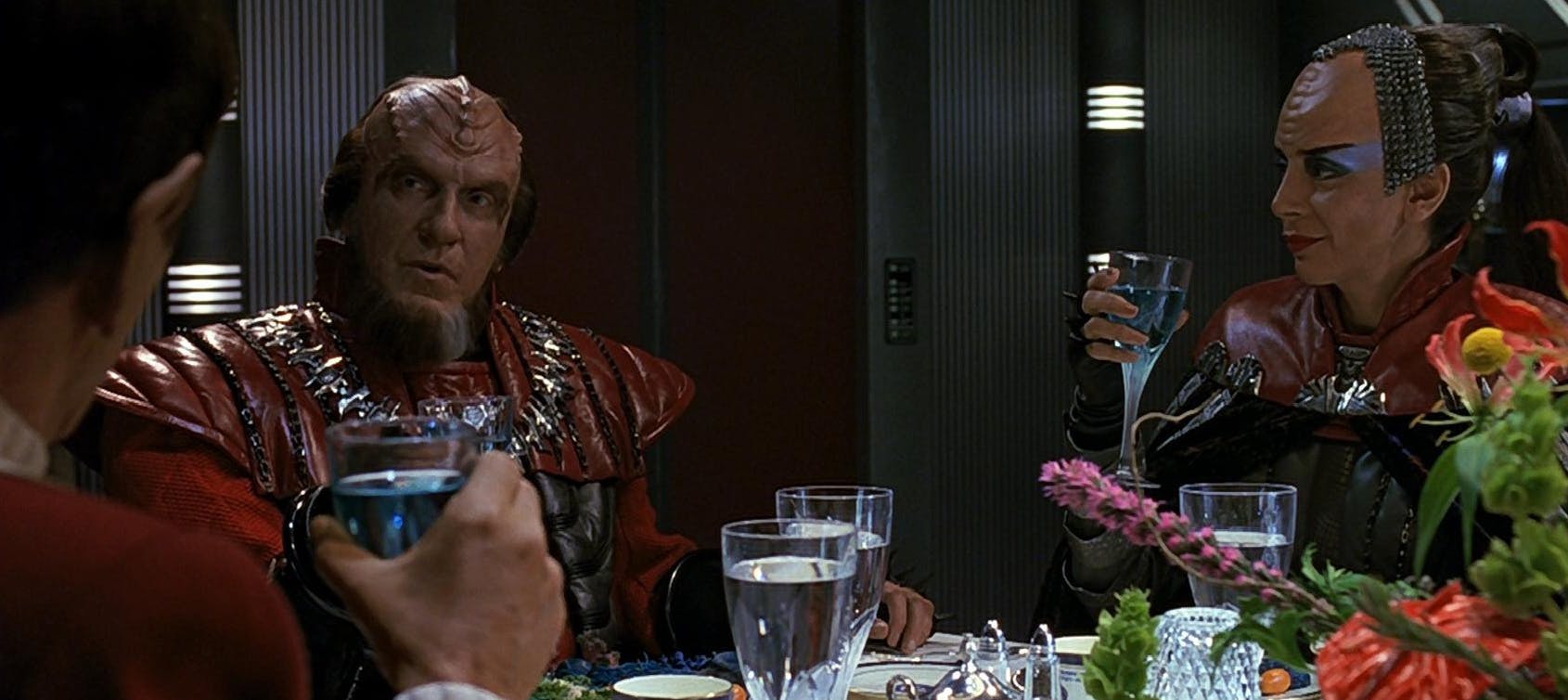
Star Trek VI: The Undiscovered Country
StarTrek.com
From Shakespearan homages to humorous exchanges, The Undiscovered Country overflowed with quotable dialogue. This duality was evident when Gorkon jokingly asserted, "You've not experienced Shakespeare until you have read him in the original Klingon," a classic line that was later countered by Chang chillingly remarking, "In space, all warriors are cold warriors."
Chang indulged in some verbal delights of his own, gleefully delivering excerpts from Earth literature as his Bird-of-Prey pounced upon the Enterprise-A. Paired with profound observations like Spock's "History is replete with turning points," and Kirk's "Peace is worth a few personal risks," the film's dialogue impresses with its depth and range.
The Battle at Khitomer
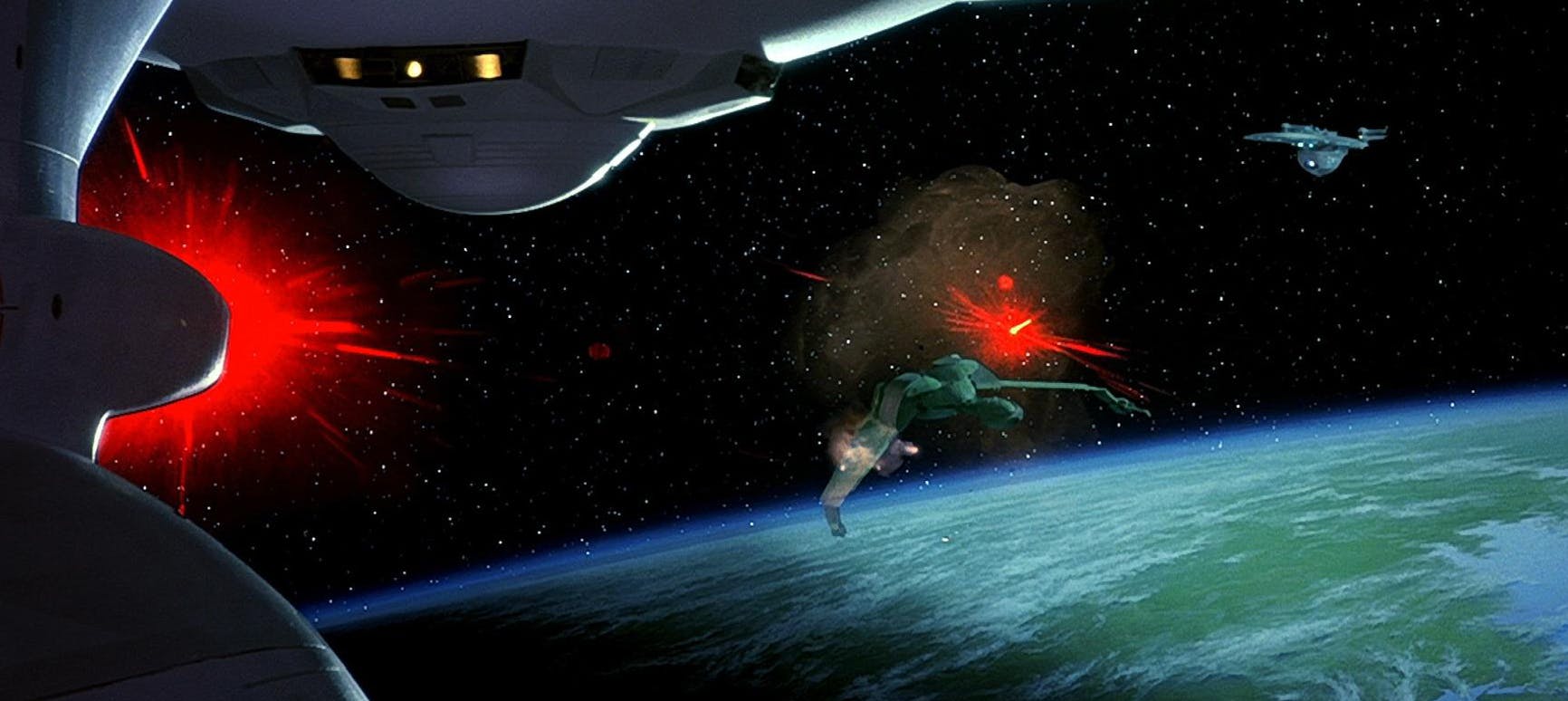
Star Trek VI: The Undiscovered Country
StarTrek.com
A thrilling space battle is not a requirement for a great Star Trek movie, but one as frenzied and fun as the clash above Khitomer can only add to the film's entertainment value.
Seeing the Enterprise-A's search for General Chang's cloaked Bird-of-Prey, Captain Sulu swooping in with the Excelsior, Spock and McCoy operating on a photon torpedo, and two Federations teaming up to defend the conference coalesced into an monumental sequence that was bolstered by superb visual effects. Chang's running commentary, as well as McCoy's wish that the Klingon would shut up, punched up the scenario by infusing it with a villainous flair and the doctor's signature humor.
Open to Improvement
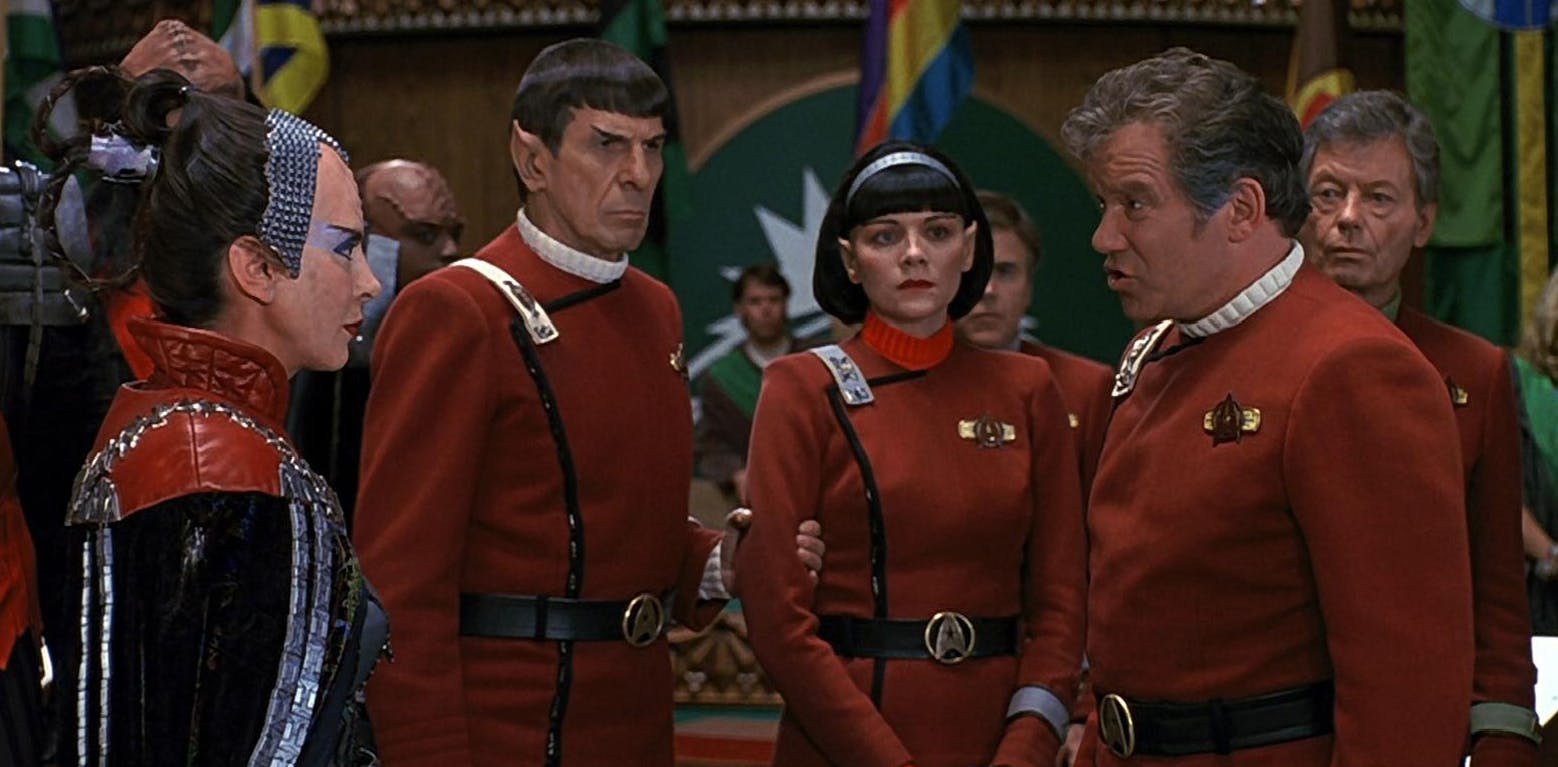
Star Trek VI: The Undiscovered Country
StarTrek.com
Our previous points relating to The Undiscovered Country's penchant for tackling prejudice and delivering thought-provoking dialogue converged in an eloquent parley between Captain Kirk and Chancellor Azetbur, Gorkon's daughter and successor, at the Khitomer Conference.
Kirk acknowledged the difficulties inherent in conquering preconceptions, and then the captain spoke one of the film's most relevant and impactful lines, "People can be very frightened of change."
This willingness to see beyond the past sparked an emotional revelation, as Azetbur and Kirk engaged in a moving act of conciliation. Buoyed by the prospect of a better future, they voiced their belief that they had restored the faith of the chancellor’s father and the captain’s son. Persevering through tragedy and loss, this resilient resolution illustrated a potential for understanding, acceptance, and forgiveness.
A Fitting Final Mission
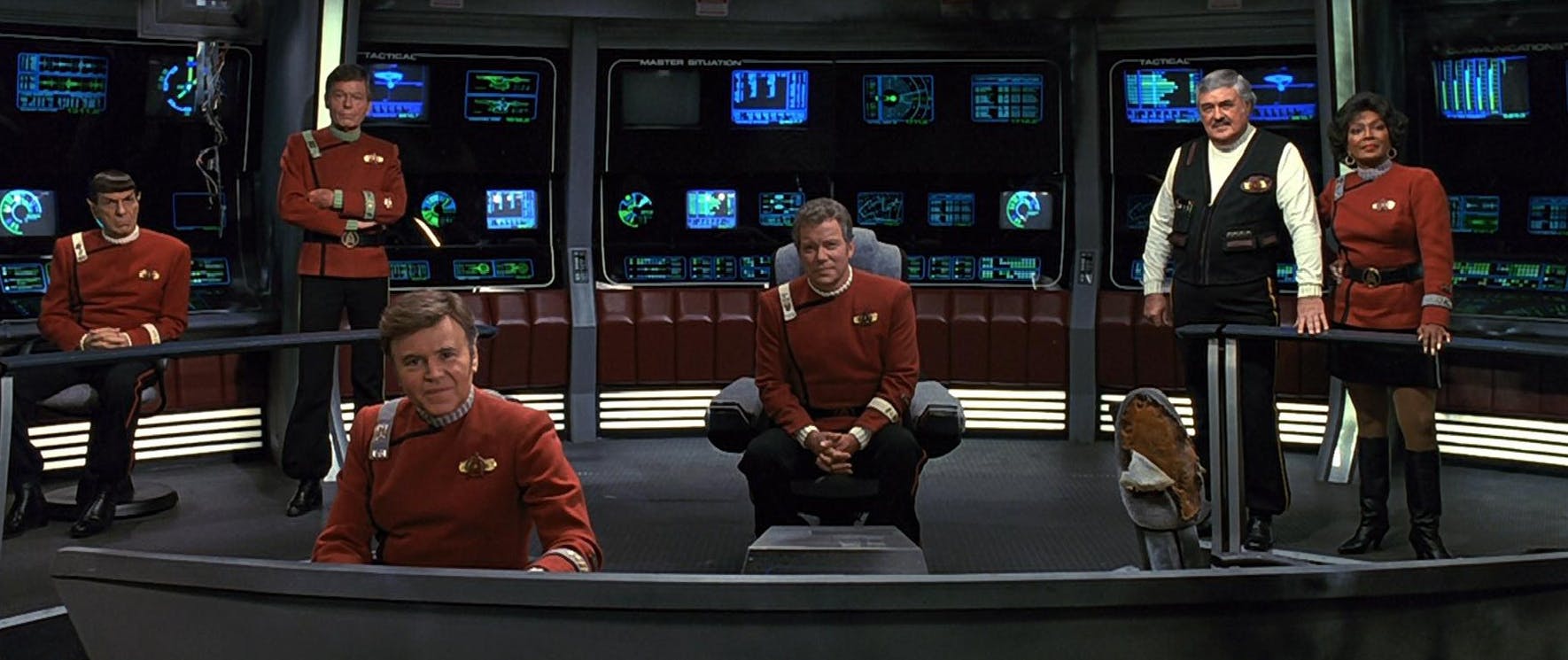
Star Trek VI: The Undiscovered Country
StarTrek.com
Although characters from the original series would go on to appear in and other Star Trek series, The Undiscovered Country capped off the cast's run as a single ensemble. Bringing an end to the bond that the storied group had forged across three seasons and six films was no easy task, but the film wrapped up this final mission with just the right amount of pomp and circumstance.
Whether in the form of Kirk's self-reflection, Spock's intention to have Lieutenant Valeris replace him, or Sulu's promotion, our heroic protagonists were clearly ready to move on to the next stages of their lives. Combining those personal journeys with the backdrop of peace negotiations with the Federation's longtime enemies signaled the end of one era and the dawn of another, as The Next Generation (in its fifth season at the time) would now carry the franchise's cinematic future on its shoulders.




